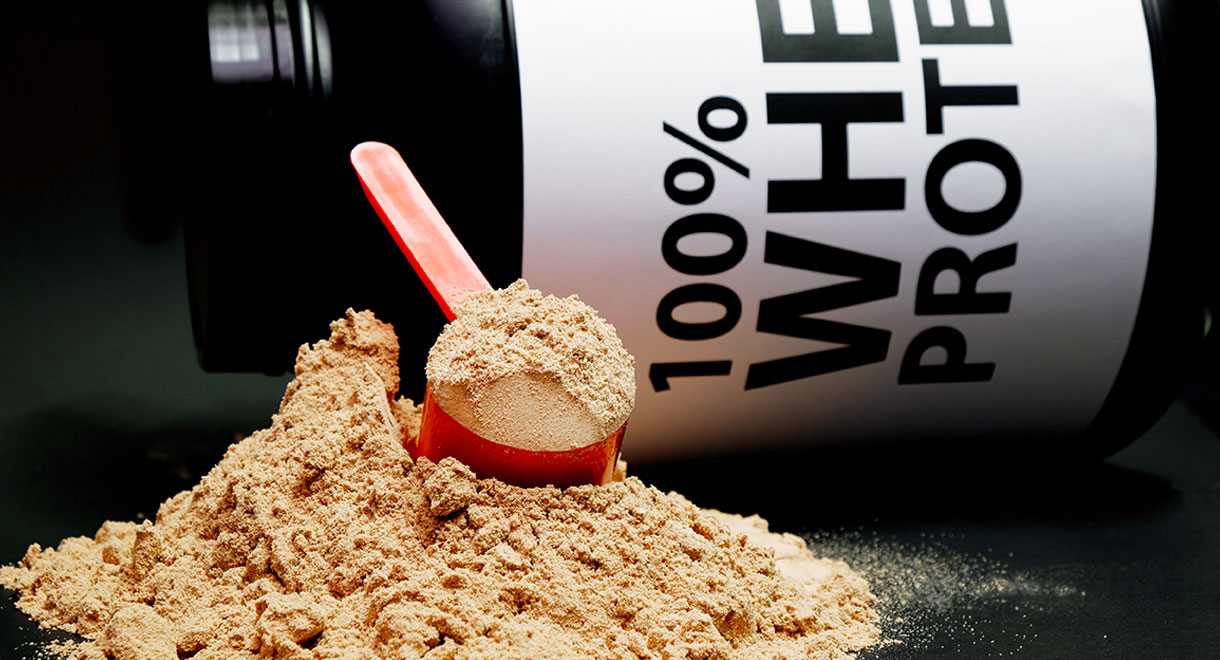Is Whey Protein Good For You Everyday?

Whey protein is a type of protein supplement made from whey, the liquid that separates from milk during cheese production. Whey protein is popular among athletes and bodybuilders because it is a complete protein, meaning it contains all the essential amino acids the body needs, and it is absorbed quickly.
Some people worry that taking whey protein every day might have negative health effects, but whey protein is generally considered safe. In fact, it may have some health benefits, such as helping to build muscle and prevent weight gain.
When it comes to building muscle, whey protein has been shown to be more effective than other types of protein, such as casein or soy protein. This is because whey protein is absorbed more quickly by the body, which means it can be used by the muscles more quickly.
Whey protein contains all nine essential amino acids, which are needed by your body for many different functions. While your body produces some of these amino acids on its own, it cannot make the others. As such, you must get them through your diet. Whey protein is particularly rich in BCAAs, which are essential for building muscle.
Benefits Of Whey Proteins
There are many different types of whey protein, but the most common and effective type is whey protein isolate. Whey protein isolate is a pure form of whey protein that has been isolated from the other components of milk. It is the most easily absorbed form of whey protein and it is also the most expensive.
Whey protein has a number of benefits that make it an ideal supplement for people who are looking to improve their physical performance.
1. Whey protein is a complete protein source. Amino acids are the building blocks of protein and they are essential for muscle growth. If you are not getting enough protein from your diet, then your body will not be able to build muscle.
Whey protein has been shown to help build lean muscle. It is also an excellent post-workout protein. It is a high-quality protein source that provides your body with the nutrients it needs to grow and repair muscles. You should make sure to choose a whey protein powder that contains enough leucine to help your body break down the amino acids in the protein.
2. Whey protein is very easily absorbed by the body. This is due to the fact that it is a complete protein source. The body can easily break down and absorb whey protein. This means that it is an ideal protein supplement to take before or after exercise.
3. Whey protein is rich in branched chain amino acids. Branched chain amino acids are essential for muscle growth. They are also known as BCAA’s. BCAA’s are broken down by the body and used for energy during exercise. They can help to improve your physical performance.
4. Whey protein can help to boost your immune system. Whey protein is rich in immunoglobulins. Immunoglobulins are antibodies that help to fight off infection. This means that whey protein can help to keep you healthy and free from illness.
By increasing the production of glutathione, whey protein has been shown to improve the immune system. It can also help with detoxification.
5. Whey protein is a low calorie protein source. This is an ideal protein supplement for people who are trying to lose weight. Whey protein is also low in fat and carbohydrates, which makes it a very healthy protein source.
6. Whey protein can help to increase your strength. Whey protein is rich in amino acids, which are essential for muscle growth. It can help you to increase your strength and build muscle.
7. Whey protein can help to improve your recovery time. It can help to repair and rebuild muscle tissue. This means that whey protein can help you to recover from exercise more quickly.
8. Whey protein can help to increase your energy levels. It can help you to feel more energetic and perform better during exercise.
9. Whey protein is a natural protein source. Whey protein is derived from milk, which is a natural protein source. This means that it is a healthy protein supplement for people who are looking to improve their physical performance.
Types Of Whey Protein
Whey protein is derived from milk and has a high concentration of amino acids, which are the building blocks of muscle. There are three main types of whey protein: whey concentrate, whey isolate, and whey hydrolysate.
Whey concentrate is the most common type of whey protein. It is made by filtering milk to remove fat and lactose. Whey concentrate typically contains 70-80% protein by weight.
Whey isolate is a more pure form of whey protein. It is made by further filtering whey concentrate to remove more fat and lactose. Whey isolate typically contains 90-95% protein by weight.
Whey hydrolysate is the most expensive and purest form of whey protein. It is made by breaking down whey protein into smaller fragments, which makes it easier for the body to absorb. Whey hydrolysate is a pre-digested form of whey protein and typically contains 95-99% protein by weight.
Whey protein is an excellent source of protein for athletes and bodybuilders. It is a quick and easy way to increase your protein intake, which can help promote muscle growth.
While there are many benefits to whey protein, it is important to ensure the purity of the powders used in the production process. Often, the protein used in protein powders comes from feed-lot cows, which are exposed to antibiotics, GMOs, and hormones that are detrimental to their health. Instead, choose a grass-fed whey protein powder made from cows raised on pastures with minimal exposure to chemicals.
Do You Workout? Take Whey Protein.
When it comes to working out, there are three macronutrients that are essential for supporting your performance: carbohydrates, protein, and fat. While all three of these nutrients are important, protein is especially critical because it's responsible for repairing and rebuilding muscle tissue.
As mentioned above, whey protein is a milk protein that is rich in branched-chain amino acids (BCAAs). BCAAs are a type of amino acid that is essential for muscle growth and recovery.
BCAAs are a group of three amino acids - leucine, isoleucine, and valine - that are essential for muscle growth and recovery. Leucine is the most important BCAA for muscle growth, as it activates a key protein synthesis pathway known as mTOR. Isoleucine and valine are also important for muscle recovery, as they help to reduce muscle soreness and fatigue.
BCAAs are often taken in supplement form to help increase muscle growth and recovery. However, whey protein is a more efficient source of BCAAs, as it also provides other important nutrients, such as calcium and phosphorus.
Whey protein is typically consumed in the form of powder, which can be mixed with water or milk. It can also be added to foods such as yogurt or oatmeal. Whey protein is also available in supplement form, such as capsules or tablets.
Whey protein is often consumed after a workout, and it can help burn fat faster than a carbohydrate-based snack. You can also use whey as a replacement for snacks throughout the day. However, it is important to note that whey protein is not a diet pill - it is an essential component of your overall nutrition.
Taking Whey Protein Every Day
Many bodybuilders swear by whey protein. It's a high-quality concentrated protein that has a variety of nutritional benefits. Although whey may help you build muscles faster, it doesn't replace a well-balanced diet and regular exercise. Even if you're not in training for a competition, whey is a good choice to supplement your diet and get an additional source of protein.
Taking whey protein daily is a great way to prevent muscle damage after an intense workout. When taken immediately after exercise, whey protein can help repair damage caused by resistance exercises, thereby reducing muscle damage.
Another major benefit of whey protein is its ability to improve the immune system. This protein increases the production of glutathione, a powerful antioxidant that helps the body fight off infection. It also helps prevent insulin resistance, a factor that can lead to overeating and gaining unwanted pounds.
People who take whey protein supplements every day should check with their doctors before starting a protein supplement. High protein intake is not harmful to healthy inpiduals, but people with kidney problems should not take it unless they are aware of the risks.
The amount of whey protein you need to take every day will depend on your body weight and your level of physical activity. Generally, 0.8 to 1.2 grams of protein per kilogram of body weight is considered a healthy daily amount. However, people who are active or who are trying to build muscle will need more than this. In order to reach your daily protein requirement, you can either consume eggs, fish, lean meat, or protein powder.
The best way to find out how much protein you need every day is to keep a food diary. By keeping track of the protein content in each meal, you will be able to determine the appropriate quantity of whey protein to take every day.

